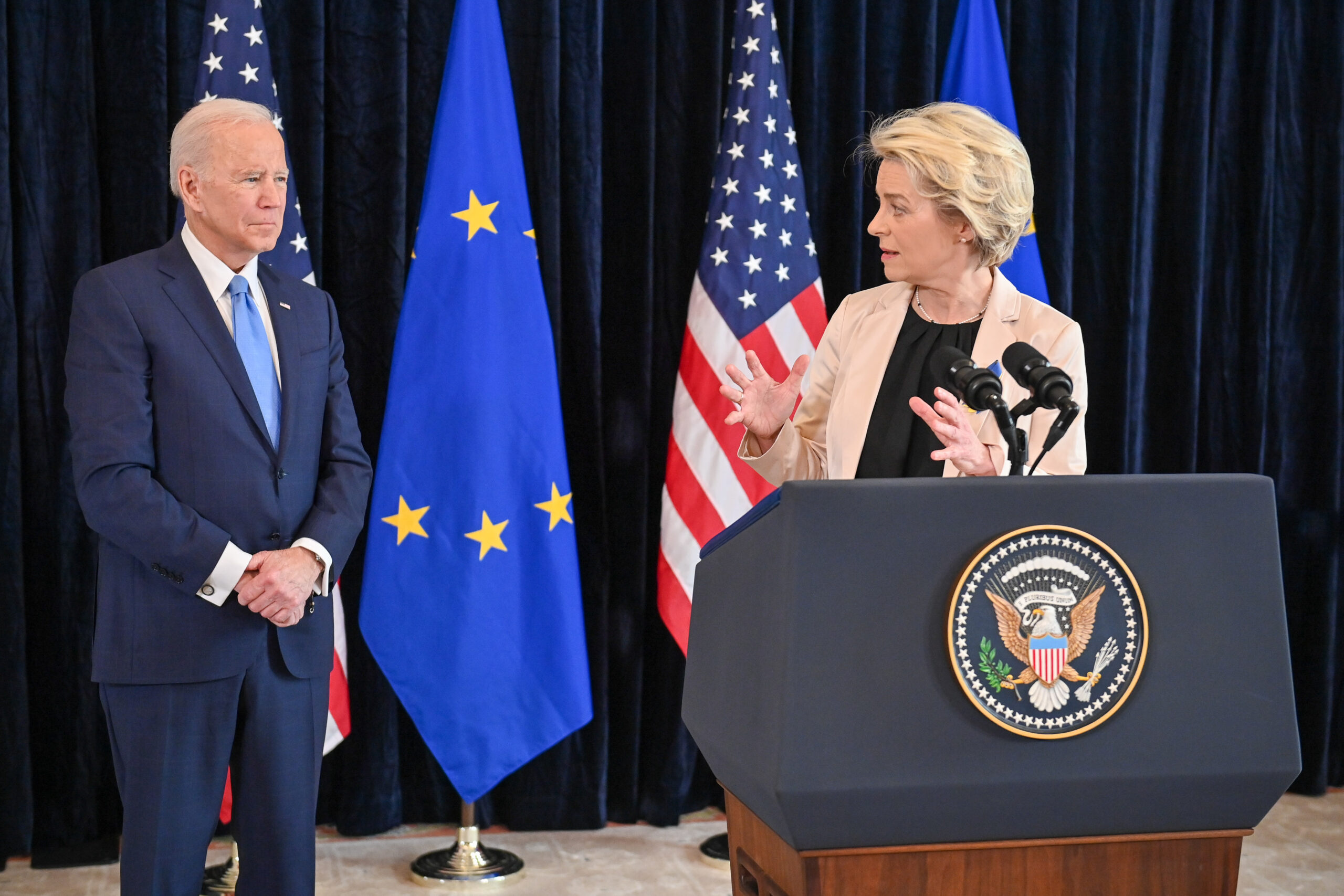All the brawls between the US and the EU over the loan to Tunisia

Italy would like to avoid the default of Tunisia, which could aggravate the migration issue. But President Saied does not want to accept the IMF loan because he is against the reforms pushed by the United States. All the details
"We must help Tunisia with funding from the IMF and the World Bank, giving at least initial aid pending reforms and a check on progress," Foreign Minister Antonio Tajani told Corriere della Sera . "By now it's a dog chasing its tail, the financial emergency feeds that of migrants".
LENDING STALL BETWEEN IMF AND TUNISIA
Tunisia is the main country of departure for migrants (but originally from the Ivory Coast and Guinea, for the most part) who arrive in Italy. Giorgia Meloni's government fears that the serious Tunisian economic crisis , which could go into default within six or nine months, will further fuel these flows.
Therefore, to prevent the Tunisian collapse, and consequently the worsening of the migration issue in the Mediterranean, Italy is trying to convince the International Monetary Fund to grant the country a 1.9 billion dollar loan. There is a problem, however: in exchange for the funding, the Fund wants Tunisia to carry out a series of reforms, but neither the presidency nor the opposition seem to be particularly willing to commit themselves in this sense.
THE ROLE OF THE UNITED STATES
It is above all the United States that is putting pressure on Tunisia to commit to reforms, which do not consider President Kais Saied a reliable interlocutor: since July 2021, in fact, Saied has concentrated a lot of power in his hands, bypassing parliament and governing with decree.
As Reuters reconstructs, Saied has never publicly supported an agreement with the International Monetary Fund. The organization therefore fears that the president will cancel the reforms once the loan is obtained, or blame it for the difficult economic situation. Saied is already accusing (without evidence) sub-Saharan African migrants arriving in Tunisia of being part of an ethnic replacement plan; since the beginning of 2023, then, twenty political dissidents have been arrested.
TAJANI'S WORDS…
“On the Americans,” Tajani told Corriere , “I can only say that we are talking to everyone, we support a compromise solution: to give initial support, because the Tunisians claim that without money they cannot carry out reforms. If then the EU or the IMF do not intervene, and China or Russia do intervene, what can we do about it?”.
… THOSE OF BLINKEN…
As reported by the Emirati broadcaster Al Arabiya , the US secretary of state, Antony Blinken, said that the Tunisian authorities urgently need to reach an agreement on the loan with the International Monetary Fund: "The most important thing they can do from economic point of view is to reach an agreement with the IMF. We would strongly encourage them to do so, as the economy is in danger of falling over the edge."
At the same time, however, Blinken reiterated US concerns about Saied's authoritarian shift in Tunisia.
… AND THOSE OF BORRELL
"We cannot close our eyes to what is happening in Tunisia," said Josep Borrell, the European Union's high representative for foreign affairs, recently during a meeting with the bloc's foreign ministers.
“Tunisia, as a neighbor, is obviously a partner” of European countries. “And what happens in Tunisia has an immediate impact on us, not only because it increases migratory flows, but because it creates more instability and insecurity in the region. It is imperative for us to prevent the economic and social collapse of the country and to support the Tunisian people".
Borrell also called on Tunis to respect the rule of law and to commit to "major structural reforms" to unblock the loan from the International Monetary Fund. “The Tunisian president must sign it, it is essential”.
WHAT SAIED THINKS
Despite invitations from Blinken and Borrell, and despite the crisis, Saied is reluctant to engage with the International Monetary Fund because he does not want to implement reforms – such as the removal of subsidies on consumer staples – which could prove very unpopular. His rhetoric, then, insists a lot on the defense of "national sovereignty" from "foreign diktats".
THE OFFER FROM FRANCE
Not only Italy, but also France is working to favor the achievement of an agreement between Tunisia and the International Monetary Fund. Paris has in fact said it is ready to contribute to covering Tunisia's financial needs for 2023 and 2024, provided that the country commits itself to reforms: "we are convinced that there is no plan B", declared the French ambassador in Tunis Andre Parant.
Specifically, France could send Tunisia 250 million euros to help it fill the budget deficit and has said it wants to commit itself to raising other funds internationally. In 2022, French companies invested €187 million in Tunisia, making France the largest source of foreign direct investment in the country.
Italy, on the other hand, is evaluating a 110 million euro loan to Tunisian small and medium-sized enterprises through the Italian Agency for Development Cooperation.
This is a machine translation from Italian language of a post published on Start Magazine at the URL https://www.startmag.it/economia/aiuti-tunisia-tensioni-stati-uniti-unione-europea/ on Mon, 27 Mar 2023 10:16:22 +0000.
